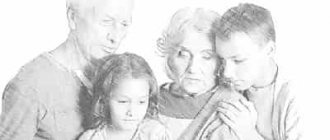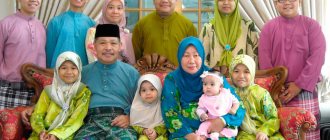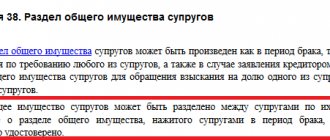Author of the article: Yulia Kaysina Last modified: January 2020 2515
In Russia there are a large number of minor children left without the care of parents or relatives. For their adaptation and socialization in society, there are foster families. Adopting an orphan from a state institution is not as easy as many people think, because the law regulates the conditions for adopting a child. If applicants for the role of future parents do not meet any of the established criteria, then they will be denied adoption. Therefore, before you start processing documents, you should familiarize yourself with the features of the procedure.
What is adoption from a legal point of view?
Adoption is a procedure that involves the complete transfer of the rights and responsibilities of parents and children to the adoptive parents and adoptees, respectively. According to the law, parents undertake to provide the child with food, clothing, education, as well as fulfill financial obligations to him and guarantee a decent existence.
Adopted children, in turn, also have separate obligations to their adoptive parents. Until they reach the age of 18, they are obliged to take into account in their actions the opinion of the parents who are responsible for them. After reaching adulthood, responsibilities include caring for seriously ill and disabled loved ones, if required.
Thus, adoption presupposes the same rights and obligations as between natural parents and children, but here the presence of consanguinity is not necessary. A relative of the child can also become an adoptive parent if he meets the established criteria.
Does the child's age play a role in adoption?
The main requirement is that the difference between the adoptee and the adoptive parent be at least 16 years. But you need to understand that in the case of newborns, you can keep the secret of accepting a child into the family.
If the minor is more than five years old, then this will be problematic. Children are usually aware of what is happening and will perceive their adoptive parents accordingly.
It is necessary to be aware of the following in advance when deciding to take an adult child into the family:
- teenagers assert themselves at the expense of other children, so there is a risk that the adopted child will become an object of ridicule because he is not like his parents,
- It may be difficult to establish a dialogue with a minor if he knows about adoption.
Article 132 of the Family Code of the Russian Federation provides for the need to obtain consent for adoption from the child himself if he is already 10 years old. It is believed that at this age he can understand all the advantages of living in a foster family.
At the same time, you first need to meet with him several times in order to be able to establish contact and understand to what extent he is suitable for specific candidates. Thus, it is necessary to take a responsible approach to choosing a child from an orphanage.
He must have an easy-going character, as it takes up to five years to develop. It is also recommended to choose a minor who is similar in appearance to the adoptive parents. This will save him from possible ridicule from his peers.
Expert opinion Maria Lokshina Family law expert since 2010 You can do without the consent of a minor if he previously lived in this family and considers the candidates to be his parents.
Requirements for candidates for adoption
At the first stage, if they want to adopt a child from an orphanage or an orphanage, citizens visit the guardianship authorities. When considering a candidate, the latter are obliged to be guided by the interests of the minor, therefore, even if the applicants have all the material benefits, but there is a problem that prevents adoption, the application will not be approved.
Expert commentary
Gorbunova Olga
Lawyer
When the commission considers the application, candidates will have to prove that they meet all the requirements and will be able to provide a decent living for the child. This is expressed not only in financial stability, but also in the moral and psychological qualities of applicants.
Let's consider the main criteria for adoptive parents:
- Age. Only adult citizens can become adoptive parents. There is no maximum age limit. The age difference between adoptive parents and adoptees must be at least 16 years. This rule is not used if the parties are related to each other.
- Having a registered marriage. Guardianship authorities give preference to two-parent families where the spouses are officially married. This creates an indirect guarantee that the child will grow up in favorable conditions and that the adoptive parents are truly serious and their decision was informed. However, the law does not prohibit the adoption of a minor by only one citizen. If a man and woman live together, this is not recognized as marriage, but they can register adoption on one side. The second one will not have rights over the minor.
- Orientation of adoptive parents. In Russia, adoption of a child by citizens of the same sex living together and in a loving relationship is not allowed. Also, here such marriages are not subject to state registration. It is for this reason that the adoption of children by foreign citizen spouses belonging to sexual minorities is prohibited in the Russian Federation. The reason for this is a psychological background: it is unlikely that living together with a minor will benefit him and contribute to full mental development.
- Good health. At the initial stage, future parents will have to undergo a full medical examination, including tests for hepatitis, HIV and other serious diseases. The results of the medical examination are provided to the guardianship authorities without fail. There is no need to be alarmed: if citizens have mild chronic illnesses that do not prevent adoption, they will not play a special role in the guardianship’s decision-making. The mental health of potential adoptive parents is also checked. To do this, you will have to undergo an interview with a psychiatrist and perform several tests. If this results in a diagnosis of mental illness, the adoption will be denied, even if it has been in remission for a long time.
- No drug or alcohol addiction. As a rule, during a medical examination you have to undergo a psychiatrist-narcologist, who examines the psyche of citizens, and at the same time conducts tests for the presence of drugs. If it is established that at the time of application the applicants were taking drugs or were ever registered due to drug or alcohol addiction, the guardianship authorities will not allow the adoption.
- Absence of an outstanding criminal record or expunged, but for serious or especially serious crimes. The latter include murder, terrorism, etc. Not every conviction will result in a refusal to adopt: for example, if a citizen is convicted of a minor or moderate crime, there is still a possibility of a positive decision. This may include road accidents with injured or killed, causing harm to health through negligence and other offenses committed unintentionally.
- Normal financial situation. This is what plays a key role, but you should not think that the guardianship authorities will demand exorbitant incomes: it is enough that, as a result of the calculation, each member of the child has at least one subsistence minimum established in the region. For example, if parents collectively earn 30,000 rubles, the minimum monthly allowance for adults is 12,000 rubles, and for a child – 10,000 rubles, adoption will be denied. Expenses for rent or debt obligations are also taken into account here - they are immediately deducted from total earnings. In most cases, in the absence of real estate ownership, citizens receive refusals upon application for adoption. It is important to remember that only official income is taken into account. If one of the applicants works unofficially, even with high earnings, his salary will not be taken into account due to the impossibility of documentary confirmation.
- Availability of own housing that meets sanitary and social standards. Each family member must have at least 18 sq.m. It is advisable that a separate children's room can be equipped for the child.
- Positive conclusion from a psychologist. Unlike other doctors, the psychologist considers candidates not only from a medical point of view - he studies their readiness to raise a child.
- The presence of a positive characteristic. The guardianship authorities definitely require it. As a rule, it is taken at the place of work. The document must indicate what the personal qualities of the candidate for adoptive parent are, how he approaches work, etc.
Important! This is only an incomplete list of requirements for adoptive parents. During the consideration of the application, representatives of the guardianship authorities may request additional documents characterizing the applicants.
Age difference between adoptive parent and adopted child
Russian family legislation has established a rule according to which the age difference between the adoptive parent and the adopted child must be 16 years or more. First of all, this condition is based on the moral, ethical and social component, as well as the desire of the legislator to bring the relationships between the adopted child and the adoptive parent closer to those that develop between a child and a parent, where, as is known, there is a significant age difference between the adoptive parent and the adopted child .
Most parents acquire their status, if not at a conscious age, then at an adult age, although there are cases in life when very young girls and boys, who are still legally children themselves, acquire the status of mother or father. In general, such cases are considered as exceptions and are not approved by society and the state.
The presence of an age difference between the adoptive parent and the adopted child creates a certain psychological climate in the relationship between the child and the parent, based, as a rule, on authority and respect, and the distribution of roles is carried out according to the principle of the teacher and the child being raised. The presence of an age difference gives parents the opportunity to fully exercise their parental rights and bear responsibilities, based on existing life experience, as well as the achieved material well-being, which allows them to support the child.
The relationship between the adoptive parent and the adoptee is built on the same principles and principles as the relationship between fathers and children. And the specifics of the procedure for becoming a de facto family, with the child’s awareness, oblige the adoptive parent to be more attentive, tactful, all in order to win attention, respect, obedience, understanding, etc. If there was no age difference between the adoptive parent and the adopted child, the relationship would be built on the basis of friendship between peers, and the behavioral requirements imposed by the new parent would not be considered as educational and mandatory for the ward. And it turns out that this state of affairs affects the quality of upbringing of the adopted child.
Who is not eligible to adopt a child?
In Art. 127 of the RF IC provides a complete list of persons who cannot be adoptive parents:
- Incapacitated or partially capable. If a married couple is adopting and one of the spouses is recognized as having limited legal capacity or incompetence, the application will be denied.
- Limited or deprived of parental rights: both in relation to the adopted child and in relation to other children.
- Citizens removed from guardianship obligations for their improper fulfillment.
- Persons with medical contraindications (serious illnesses).
- Applicants who do not have permanent residence or an optimal income level.
- Citizens convicted of intentional crimes against life and health, sexual integrity, etc.
- Married couple belonging to sexual minorities. This also includes foreign citizens, despite the fact that in some countries such unions are legalized.
Important! A man and woman who are not in a registered marriage cannot adopt a minor; in this case, adoption is registered only in the name of one of them.
Basic requirements for adoptive parents
The age difference at adoption is not the only and main requirement for adoptive parents. To carry out this procedure, a number of certain conditions must be met in total, but they are not clearly defined by law. The government took a different route here, defining a list of those who cannot be adoptive parents:
- persons recognized by the court as incompetent due to mental disorders;
- persons suffering from alcohol or drug addiction;
- persons who have been completely or temporarily deprived of parental rights;
- persons who were already adoptive parents, but due to the infringement of the rights of a minor, the adoption was canceled;
- guardians (trustees) who did not fulfill their obligations and, as a result, were removed from this;
- persons suffering from diseases, the presence of which will interfere with the fulfillment of the responsibility to raise children (oncology, tuberculosis, diseases of the central nervous system, etc.).
The priority right to adoption has the relatives of a minor, regardless of the place and country of their residence, and in the absence of them, other citizens of the Russian Federation. At the same time, they must be of age, have a permanent source of income and be provided with housing. In addition, the judge also takes into account the social status of the candidate for adoptive parents, how he behaves in society and whether he has a criminal record. Therefore, it is impossible to predict in advance what the court’s decision on the adoption of a child will be - for this it is necessary to thoroughly study all aspects of the case.
Documents for adoption of a child
Preparation for the procedure involves collecting the necessary documents that will need to be submitted to the guardianship and trusteeship authorities.
Prospective adoptive parents will need:
- Identity document;
- Certificate confirming income for the last 12 months;
- Autobiography;
- Certificate of no criminal record;
- Medical report on health status;
- An extract from a personal account or house register.
A certificate for a medical examination is issued in accordance with the form issued by the guardianship authorities. For married couples, it is necessary to supplement the list of documents with a marriage certificate. If a child is taken from an orphanage, then written consent from the administration of the institution will be required.
The guardianship authorities will draw up a conclusion on the decision of the adoption commission for the court hearing. The following documents are attached to the paper:
- Child's birth certificate;
- Consent of his parents to adoption (if necessary);
- Medical certificate about the baby’s health status;
- The child’s consent to adoption (if he is over 10 years old), change of last name, first name or patronymic;
- Conclusion of the commission on the state of living conditions of future parents.
Expert commentary
Kireev Maxim
Lawyer
If the child was under guardianship or patronage, then the consent of his guardians for adoption is required.
The consent of the child’s parents (guardians) must be certified by a notary or the government institution in which he is located. In some cases, it is allowed that the guardianship authorities will do this. The consent of legal representatives for the adoption of a minor is not required in the following situations:
- They are officially declared incompetent;
- For more than six months, parents (guardians) do not live with the child for no valid reason;
- Information about the whereabouts of relatives is unknown.
The validity period of documents and certificates is 1 month. Therefore, you should collect them in the shortest possible time, and then immediately contact the guardianship authorities.
Representatives of the department are required to inspect the living conditions of candidates for adoption, after which they will issue a conclusion. The room in which the child will live must comply with certain sanitary, hygienic and technical standards. It must be dry, ventilated, clean. Candidates for adoption should plan a place where the child can study, play, sleep, etc.
Age criteria for an adoptee
Family arrangement is possible only in relation to minors (Article 124 of the RF IC). Therefore, the adoptee must be between 0 and 18 years of age.
Moreover, upon reaching 10 years of age, the child independently decides whether he wants to be placed in a foster family. The exception is the situation when a minor lives in a family and considers the adoptive parents to be their blood mother and father.
The law does not provide for the possibility of adopting an unborn child. Therefore, a prerequisite is the birth of a baby and registration of his birth.
When the person being adopted reaches 18 years of age, family placement is prohibited. Moreover, the court decision on adoption must enter into legal force 1 day before the child reaches adulthood.
How to adopt a child: step-by-step instructions
Having decided to take a child from the maternity hospital, you need to wait until the mother is deprived of parental rights. Even in the event of a written refusal of the baby, you will be able to take him in no earlier than six months later.
Before contacting the guardianship authorities, it is necessary to obtain parental consent for adoption. It will not be required only in the cases specified in Art. 130 IC RF:
- recognition of parents as missing;
- deprivation of parental rights;
- incapacity;
- evading the maintenance and upbringing of a minor, lack of cohabitation with him for more than six months without good reason.
The procedure itself looks like this:
- Applicants collect a package of documents, fill out an application for an adoption certificate and submit everything to the guardianship authorities.
- The documentation is reviewed within a month, after which applicants are invited to the POiP department and given a referral to undergo a medical examination.
- Representatives of the guardianship authority check the living conditions of the applicants, draw up a corresponding report and attach it to the file.
- Financial solvency is checked. To do this, at the initial stage, guardianship examines salary certificates.
- If the decision is positive, the prosecutor's office is notified. The case cannot be considered in court without the participation of her representatives.
- Documents are submitted to the court. Adoption is carried out exclusively as a special procedure.
- The judge makes a decision. If it is positive, an extract from it is sent to the registry office to make changes to the documents of the parents and the child within three days after it comes into force.
- Adoptive parents pay the state fee, order a birth certificate for the child, and make changes to their documentation.
Important! Adoption is carried out only by court decision. Without it, registry office employees will not accept documentation from citizens. In addition, the child is transferred to the parents only after the decision enters into legal force.
Candidates for adoptive parents can be citizens not only of Russia, but also of other countries. The exception is for residents of the United States and other countries where same-sex marriage is officially permitted. Documents submitted to the court may be issued in another state, the citizen of which is the potential adoptive parent. But all papers will first need to be legalized in Russia. Documents are submitted to the court in two copies.
Exceptions for age difference
There are exceptions to the general rule, and the age restrictions for adoption can be changed downwards by the court if the reasons are exceptional and valid. A specific list of reasons is not provided either in the Russian Investigative Committee or in any other normative act regulating adoption issues, therefore, assessing the validity of the reasons rests with the judges, taking into account the characteristics of each specific adoption case.
- Judicial practice has taken the path of recognizing the following reasons as valid when the age limits are not maintained between the adoptive parent and the adoptee:
- There is a relationship between the adoptive parent and the child, for example, uncle and nephew, etc.
- The adoptive parent has high material income, which allows him to fully provide for the maintenance and upbringing of the child;
- There is a relationship between the adoptive parent and the child, for example, the adoptive parent is godfather to the adopted child. However, this rule also applies to close family friends who were part of the family circle during the parents’ lifetime and who are familiar with the child and have a positive educational influence on him;
- The adoptive parents are a married couple, and the age of one of the spouses of this couple does not differ significantly from the established restrictions. In addition, Article 128 of the RF IC stipulates that the age difference between the adoptive parent and the adopted child does not matter if:
The adoptive parent is the spouse of the parent of the adoptee, i.e. stepfather or stepmother intend to take on the responsibilities of a parent not only in fact, but also legally.
In any case, when making a decision on adoption during the legal process, the judge clarifies all the essential conditions so that the interests of the adopted child come first. If possible, the child’s own opinion is clarified and must be taken into account when making the appropriate decision.
In Russia, a fairly large number of children, for various reasons, need a new family and want to find new parents or parents. The country's legislation in matters of adoption, although it provides for a considerable number of requirements, which not everyone who wants to have a child meets with responsibility. However, such legal restrictions and measures are aimed at maximizing the interests of the child, his comprehensive development, upbringing, etc. Errors when making a decision on adoption are unacceptable, since this can cause significant psychological trauma to a child who has suffered the loss of his natural parents.
Conditions for adoption
In order for the court to make a positive decision, the conditions for the adoption of minors must be met. They are aimed primarily at protecting the interests of children:
- Thus, it is not permitted for brothers and sisters to be adopted by different families. This situation is allowed in rare cases and is considered in court. The judge will make a positive decision only if the procedure allows protecting the rights and interests of minors.
- Applicants for the role of parents must be legally competent adult citizens. Candidates must not have a criminal record in the past. Priority in adoption is given to Russian citizens over foreign adoptive parents.
- Not only married couples, but also unmarried persons can adopt a child. They are subject to the same requirements as those who are married. Potential parents must not have serious nervous or mental illnesses. To increase the chances of a positive decision on adoption, it is necessary to obtain a certificate from a drug treatment clinic stating that the citizen is not and has not been registered there.
- Prospective adoptive parents are required to take foster parenting courses. A referral for training will be issued by the guardianship and trusteeship authorities. The courses are free and funded by government funds. Their goal is to psychologically prepare applicants for adoption for adopting and raising a minor.
After a positive court decision is made, the parents can take the child. To do this, you will need to present a passport and a writ of execution.
Expert commentary
Gorchakov Vladimir
Lawyer
Russian legislation provides for the preservation of the secrecy of adoption. The court hearing is held behind closed doors, and only interested parties are present. Parents can then change the baby's birth information or name to maintain the secrecy of the adoption. Parents can decide for themselves whether or not to tell their child that he has been taken into the family. However, all other participants in the adoption process do not have the right to disclose this information to outsiders.
Age limits for adoptive parents.
The Family Code in Article 127 regulates the general rule: you can only adopt a child from the age of 18.
Men and women have the right to become adoptive parents after reaching adulthood. This is the lower age limit. The upper limit is not established by law.
It all depends on individual characteristics.
- Can an elderly person support a child?
- What is his health status?
- What are the conditions for raising a child?
- Other reasons for adoption.
As a rule, older people decide to adopt when it comes to grandchildren, or other relatives and friends left without guardianship.
In addition, there are other requirements for persons who want to become adoptive parents.
This is a requirement for a clean criminal record and the absence of cases of deprivation of parental rights. It is important what the income of the potential adoptive parent is.
The guardianship authorities will require a certificate from the hospital. A person with a serious illness cannot become an adoptive parent; it is not safe for the child.
Also, two people cannot become adoptive parents at once if they are not married.
Problems of adoptive parents
After a child is placed into a family, some adoptive parents have problems. Among the main ones is the health of the baby. To rule out problems, it is recommended to do an independent medical examination in advance, which is permitted by law.
Some parents believe that adopted children may have bad heredity, because often minors brought up in families of alcoholics, drug addicts, etc. are sent to state institutions. But psychologists say that under favorable conditions of upbringing and socialization, such children grow up to be quite successful people. In order for the child’s adaptation to the new family to go well, it is recommended to contact a child psychologist.
Until what age can you adopt a child?
There is no upper limit on the age of adoption. Thus, a citizen can submit an application even at the age of 80.
However, there are several prohibiting factors under which the guardianship authorities will not allow the child to be taken into the family:
- partial or complete incapacity in accordance with a court decision,
- disability of 1 or 2 groups,
- deprivation of parental rights or their restriction at the present time or in the past,
- removal from the duties of a guardian or trustee as a result of their improper performance,
- the presence of diseases or other defects that are specified in Decree of the Government of the Russian Federation No. 542 of 01.05. 1996
- there is no regular income or its amount is insufficient for the normal maintenance of a minor,
- lack of home ownership,
- the housing is in disrepair, does not meet the requirements of the SES or is subject to demolition,
- having an outstanding criminal record.
These factors will not allow the candidate to adopt the child or establish temporary guardianship over him. Employees of responsible structures check all documents within 30 days, after which they make a decision. Parents have the right to change the name of a minor, and he is also given the surname of the adoptive parents.
Typically, the issue of age worries potential adoptive parents themselves. They are worried that it will cause discomfort to the child. Seeing that his peers have young parents, he may develop complexes.
In this case, there may be problems in establishing a trusting relationship between the child and his adoptive parents. Experts say that upon reaching 10 years of age, children become sensitive to outside attention. As a result, problems may arise in the education process.
Most older adoptive parents find it difficult to maintain an active lifestyle and adapt to changing conditions. Therefore, they will not be able to understand the hobbies of their adopted child, which can also cause quarrels.
The legislative framework
Adoption and subsequent relations between parents and a minor are regulated by two sections of the Family Code of Russia. Chapter 19 defines the specifics of the procedure and the conditions for adoption. It contains the main points:
- requirements for potential adoptive parents;
- method of carrying out the procedure;
- categories of children subject to adoption;
- situations where consent to the procedure is required from minors themselves, their relatives or guardians;
- changes that can be made to data on place, time of birth and other personal information;
- the mystery of adoption;
- conditions for canceling the procedure, its consequences, etc.
After a child is adopted, the relationship between the parents and the minor is regulated by Chapter 12 of the Family Code of the Russian Federation.
The adoption procedure is not simple, so future parents will have to go through many steps before taking a child into their family. In order to make this task as easy as possible and save time, it is recommended to consult a family lawyer. He will be able to explain in detail the legal subtleties, help in drawing up an application and collecting important documents. If necessary, a lawyer can provide assistance in court if problems arise with the adoption.
Housing requirements for potential adoptive parents
According to current legislation, the standard is set at ten square meters of living space per person.
Consequently, the child must have his own spacious room so that the guardianship and trusteeship authorities do not refuse a potential candidate for adoptive parents. The home must be equipped with everything necessary for the child to feel comfortable in such conditions.
If representatives of the guardianship authorities, having visited the apartment or house of a potential adoptive parent, come to the conclusion that the child will be unwell here, then the applicant will probably be refused.








